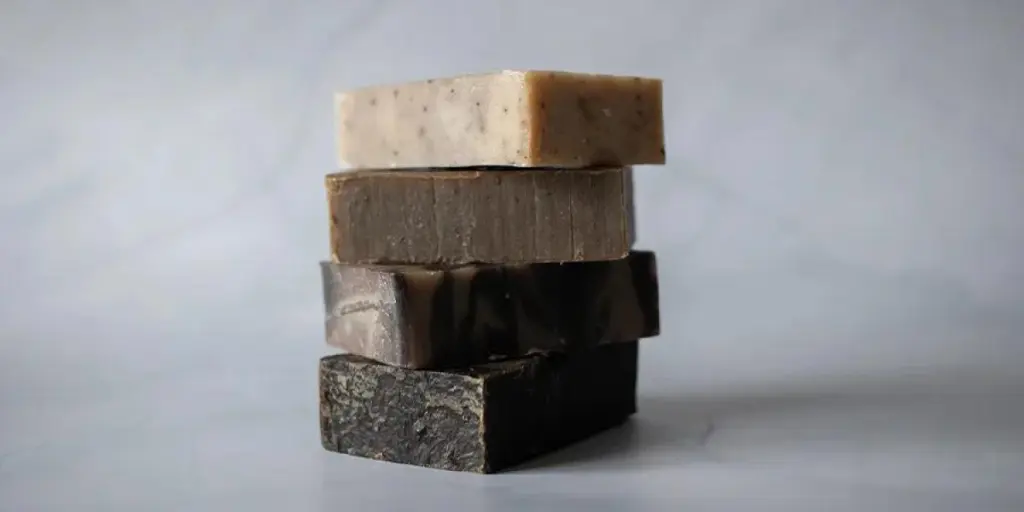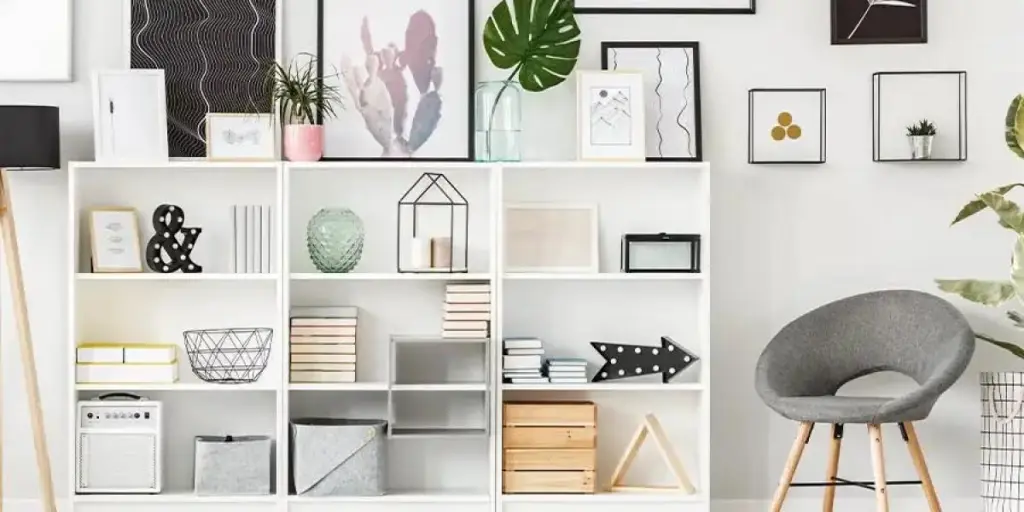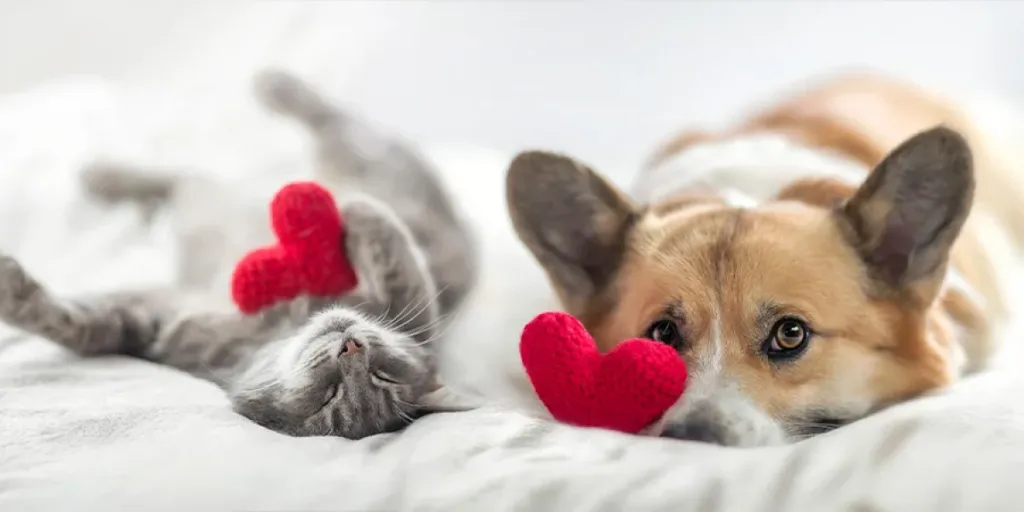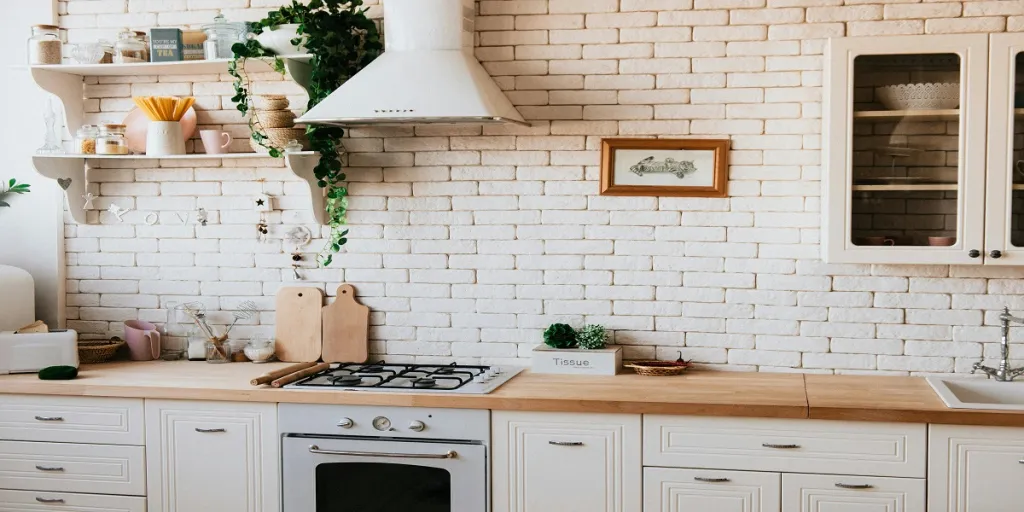Tea has a magical power to uplift the mood and bring people together – and what is a tea party without a fine teapot? From drinking tea by one’s self to serving it to guests, tea and the means by which it is served are important aspects of making these moments precious.
This article will explore the teaware market and some of the best products available in 2024.
Have a look!
Table of Contents
Global teacup market size and analysis
Types of materials used for teacups
How to choose the perfect teaware
Final thoughts
Global teacup market size and analysis
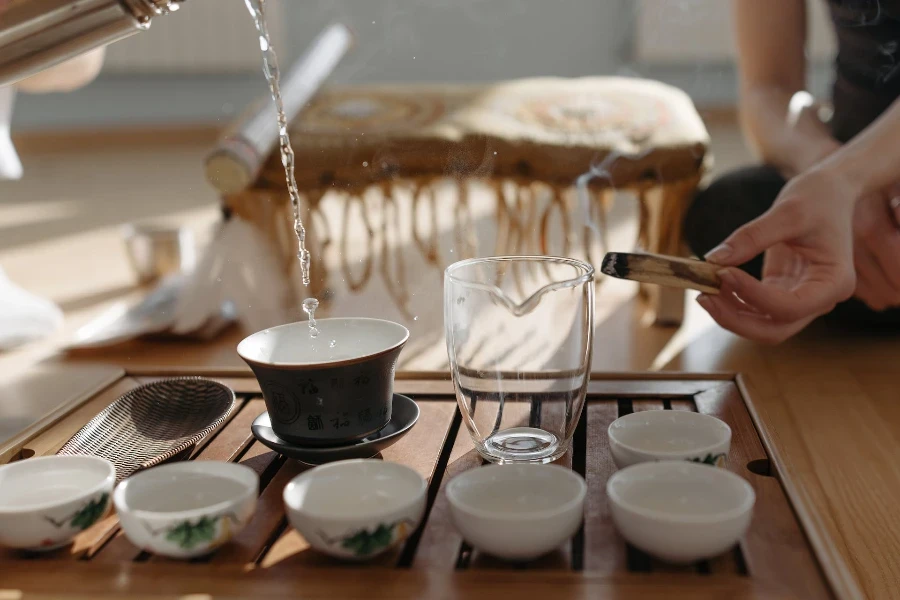
Millions if not billions of people around the world consume tea daily. According to Data Intello, the global tea cups market is expected to grow at a CAGR of 5.5% during 2018-2028. Asia Pacific was the biggest market for teacups in the world in 2019, with over 40% of all sales. This is likely because more and more people are drinking tea in countries like China, Japan, Indonesia, Malaysia, and India. Europe is also a significant market, with people increasingly drinking options such as green fruit-based teas.
Types of materials used for teacups
Various materials are used to make the teacups, including:
Stainless steel
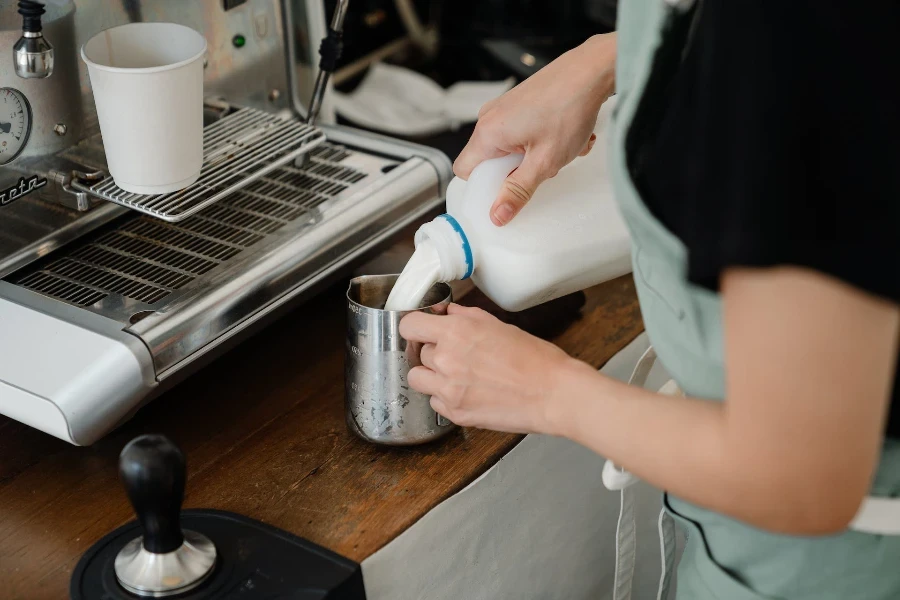
Though stainless-steel teacups usually do not have colorful designs, unlike their china or ceramic porcelain counterparts, they do come in interesting styles and give a modern feel to this classic pastime. Some cups can be customized with logos or writing according to prospects’ demands, increasing their market appeal.
These cups are not only chic but are also almost impossible to break or chip. They also do not rust easily, meaning that they can last for years.
Glass
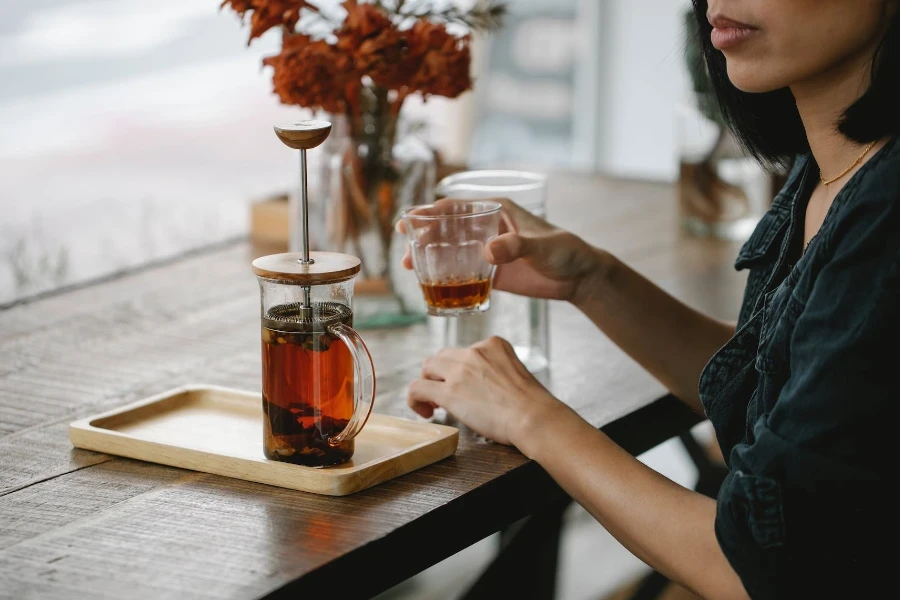
Glass, especially tempered glass, is both strong and one of the most popular materials for teaware. Even research has shown that a type of glass, borosilicate glass, is the purest and safest material for teacups as it does not leave any chemicals or toxins in the tea.
Ribbed glass teacups are a good option, with the indents serving a functional purpose – making them easier to grip – as well as an aesthetic one. They are also more resistant to shock and heat.
Glass teacups also give the air of environmental friendliness, meaning that sellers who stock them can likely better attract customers with a more eco-conscious outlook.
Ceramic porcelain
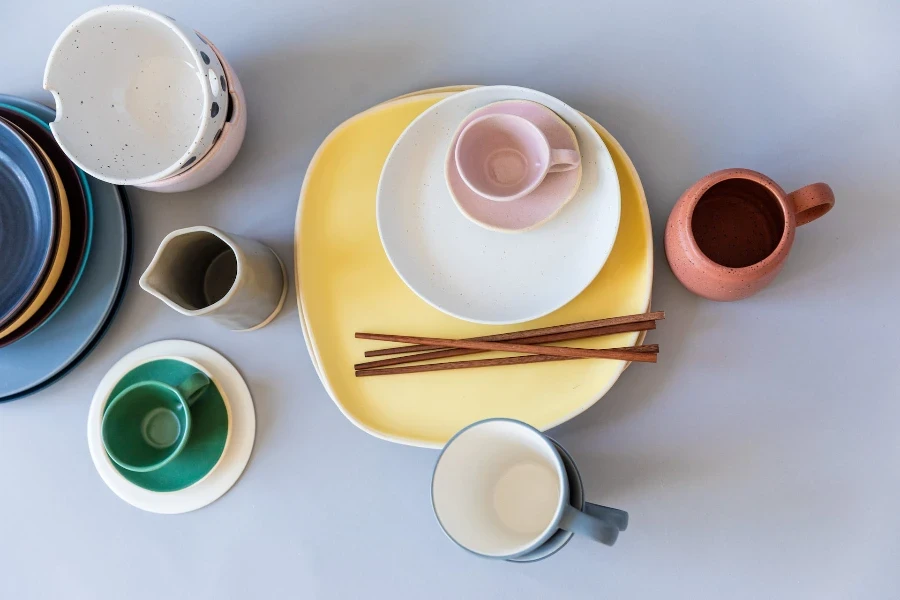
Ceramic porcelain, which is favored for its elegance and variety of designs achieved using raw materials like kaolin, feldspar, quartz, and clay, has been used for centuries and is most commonly associated in the West with British ceramic tea sets.
Ceramic teacups have the benefit of being non-porous and non-reactive, meaning that it doesn’t affect the taste of the tea. In addition, the luxurious feel of ceramic tea sets makes them a top choice for sophisticated parties and professional conferences.
Plastic
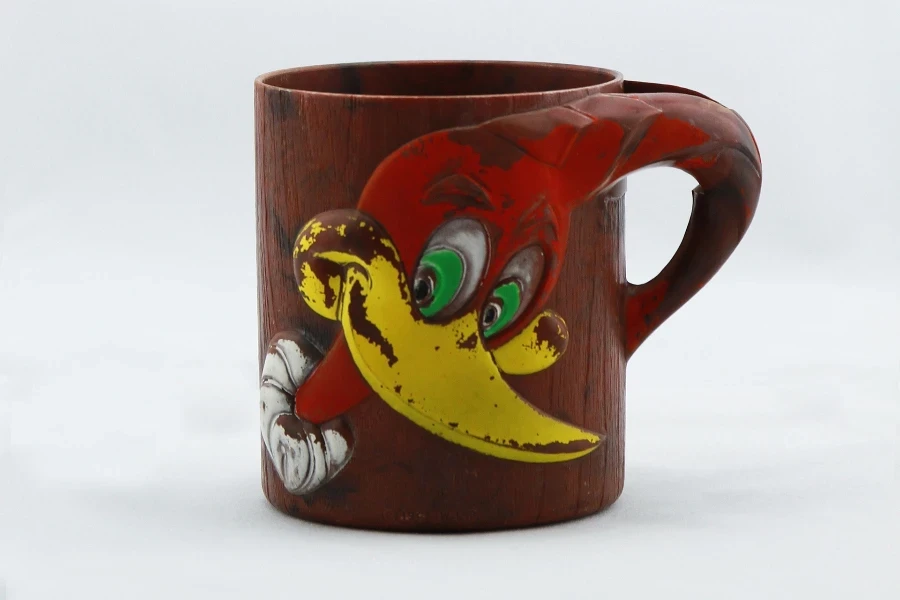
Plastic is favored for its lightweight yet sturdy structure, making plastic teacups – usually made from polyethylene terephthalate, or PET – particularly difficult to break. This makes them the natural choice for picnics and parties, especially those that involve kids.
Plastic teacups come in vibrant colors and can be customized in different styles and designs, with printing being comparatively easy. Also, plastic teacups are relatively cheap, making them easier to add to an inventory without compromising the budget.
Plastic teacups are versatile, and can be used for various types of tea, from herbal blends to green teas. The neutral quality of plastic means that it does not retain flavor, ensuring that each cup is free from the lingering taste of previous brews.
Bone china
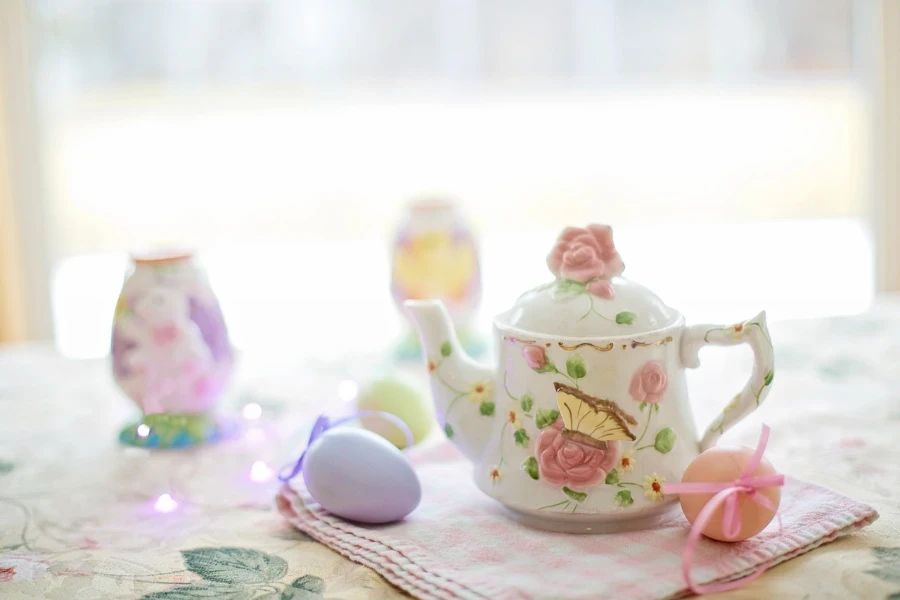
Often made from Chinese clay, Chinese stone, and bone ash, bone china is lightweight and elegant but can be more susceptible to chips and breaks.
People like to use bone china teacups, especially on special occasions, for their sophisticated look.
How to choose the perfect teaware
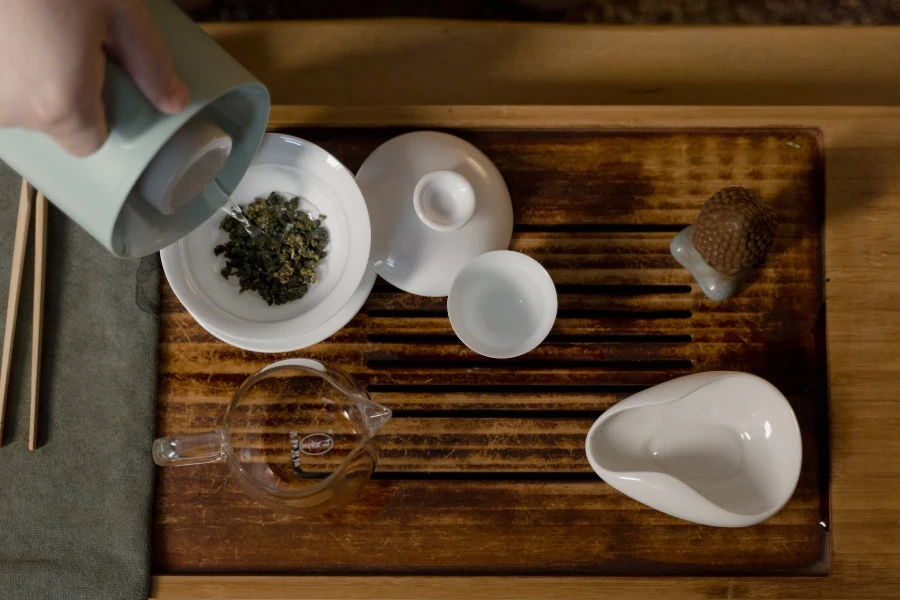
Selecting teaware can be a daunting prospect due to the sheer number of manufacturers, as well as fluctuating customer demands. Some factors to consider before purchasing include:
Capacity
The teacups should be big enough to hold a sufficient volume of tea and be designed so that they retain heat, keeping the beverage inside warm. Therefore, it’s good to choose materials that are strong and insulated.
Porousness
The teacup’s material should be non-absorbent, preventing the flavor of the tea from diminishing. Also, non-porous teacups allow the user to drink and enjoy the tea’s taste to its fullest. Exquisite ceramic teasets are therefore a great option for markets where aesthetics and functionality are highly prized.
Chemical makeup
It may be obvious but a teaware set must be made from safe materials as it prevents the tea from becoming contaminated, potentially harming the health of the user.
Final thoughts
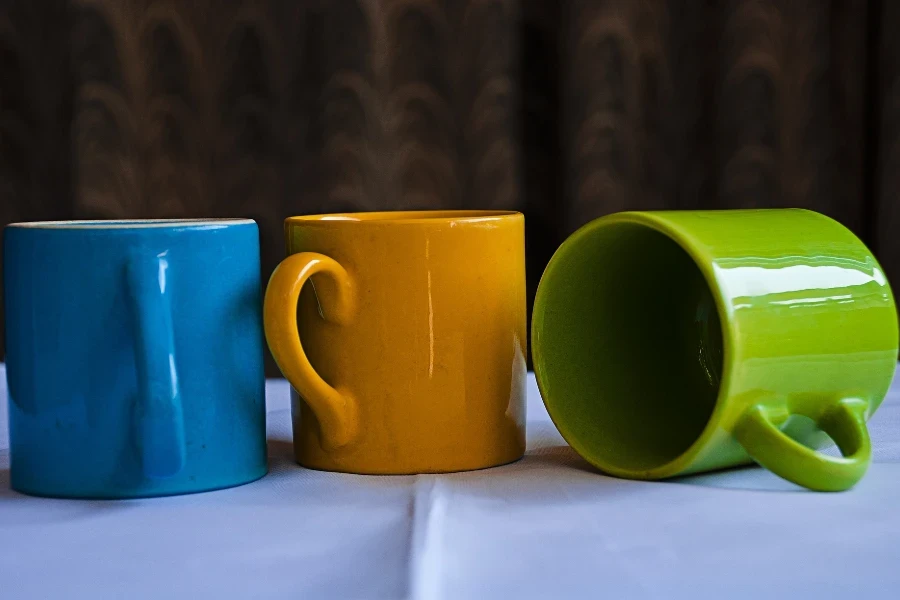
Tea is one of the oldest beverages used by mankind and remains a favorite way for millions to kickstart their day, and people can get a particularly special feeling from sipping tea from elegant tea sets. Tea is also a great excuse to catch up with friends, hang out with spouses, or meet someone for a date, which partly explains why demand for tea sets is on the rise.
The choice of teacups for wholesale is important as a seller must first research the industry and find out the pain points of the mass market. This evaluation will help them to make an informed decision when adding teaware to their inventory. There are countless options out there, so it is advisable to choose varieties that are likely to fulfill consumers’ varied needs.
If you’re in the market for tea sets, browse a huge variety from trusted sellers on Chovm.com.

